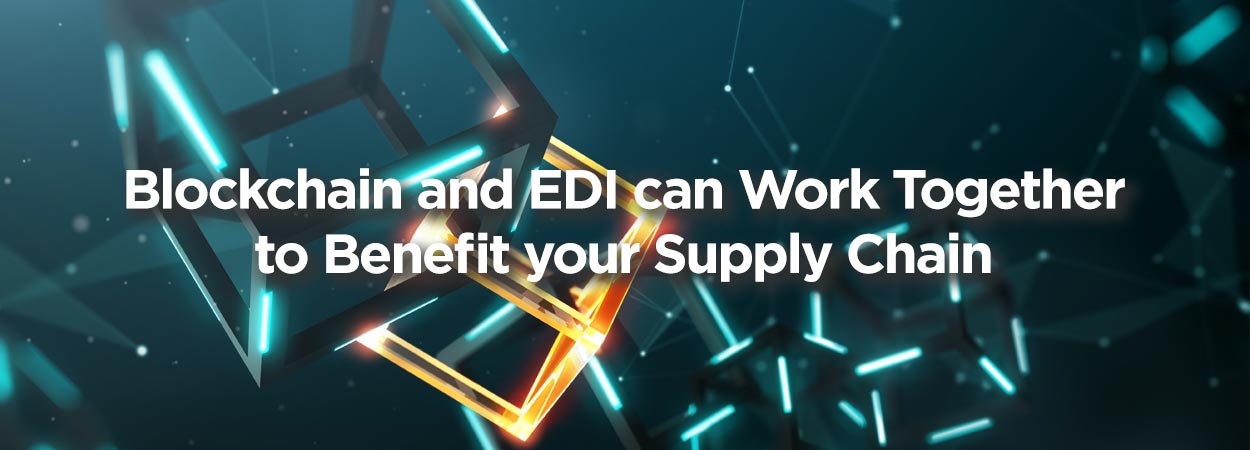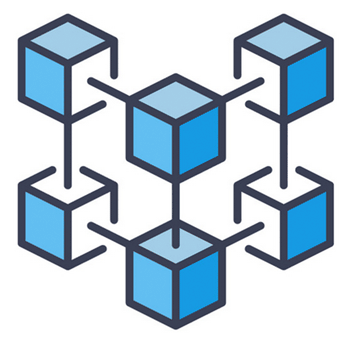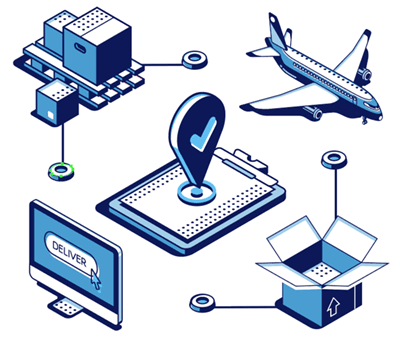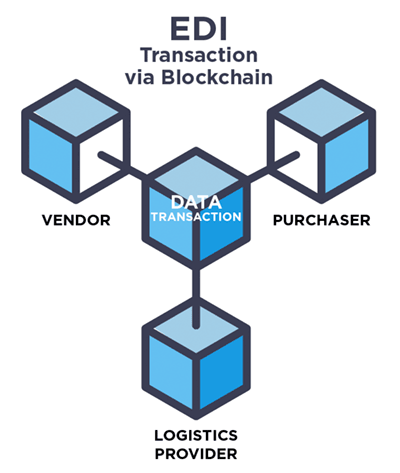Blockchain is the new tech buzzword that everyone seems to be talking about. It is generating a lot of excitement and blockchain seems poised to have a positive impact on multiple industries. There have been some rumblings recently that blockchain could replace one of the most widely used methods of information transfer used in organizations today, EDI (Electronic Data Interchange). What is this new technology and what can it do for your business?
What is Blockchain?
Blockchain is not a software solution. It is a peer-to-peer ledger technology that documents and cross-checks transactions against each other. Once a transaction is made, it cannot be changed. If someone wants to add a new transaction through the system, all parties involved must approve it before it can be added to the ledger. When a transaction is added to the ledger, it is put into a “block”. Each block is then connected to the block that precedes it and the one following it. The process continues to build a permanent chain.
When comparing figures, blockchain ensures the entire network is working with the same numbers. Once the transaction has been checked, it moves onto the next transaction to confirm its accuracy.
Blockchain can be used by manufacturers, distributors, warehouses, shippers, and retailers to track materials, products, deliveries, and more. Copies of the data can be accessed on multiple devices. The information can be found quickly, and users can be confident in its accuracy.
Benefits of Using Blockchain
Blockchain offers visibility throughout the supply chain, which gives you the following benefits:
- It monitors the entire supply chain for errors in a proactive manner.
- Blockchain gives you insights and key indicators that you can use to optimize efficiency and keep costs in line.
- Customers can use blockchain to track materials and products as they move through the supply chain.
Limitations to Blockchain
Blockchain is not meant to be used on its own as a complete answer to data tracking. It must be integrated with your ERP to connect with your financial, sales, and manufacturing processes. If your data is available to your ERP, you can react quickly to circumstances like a product recall. In the case of a product quality issue, customers can be notified, replacement parts ordered, and service calls scheduled automatically.
How Blockchain and EDI Work Together
When you look at how transactions are conducted through EDI, they generally include three parties (vendors/purchasers/logistics providers). The messages flow in one direction only, between two of the three parties at a time. In contrast, blockchain transactions are shared between all three parties at once, making information sharing is much more efficient.
Blockchain works in tandem with your EDI system to ensure information throughout the supply chain is shared smoothly. Everyone can see exactly what is taking place. There are no concerns that an essential piece of information has not been conveyed. Blockchain technology can act as a starting point for supply chain management. It removes inefficiencies and vulnerabilities in the existing system. Each version of a permanent document can also be listed and verified.
Blockchain also allows for traceability throughout the entire supply chain. Blockchain technology gives you a comprehensive approach to multi-business transaction management. EDI will be used as the transmission system to link these networks as blockchain becomes more widely used.
The EDI system will continue to feed data from siloed applications and from one business (vendor/purchaser/logistics providers) to another. It will also connect these individual applications to the blockchain network. From that point, they will have the same level of transparency as other transactions across the supply chain.
In our next post, we will look at why integrating your EDI and ERP makes sense for your business.
In the meantime, if let us know if you have any questions about how to optimize your business processes.





